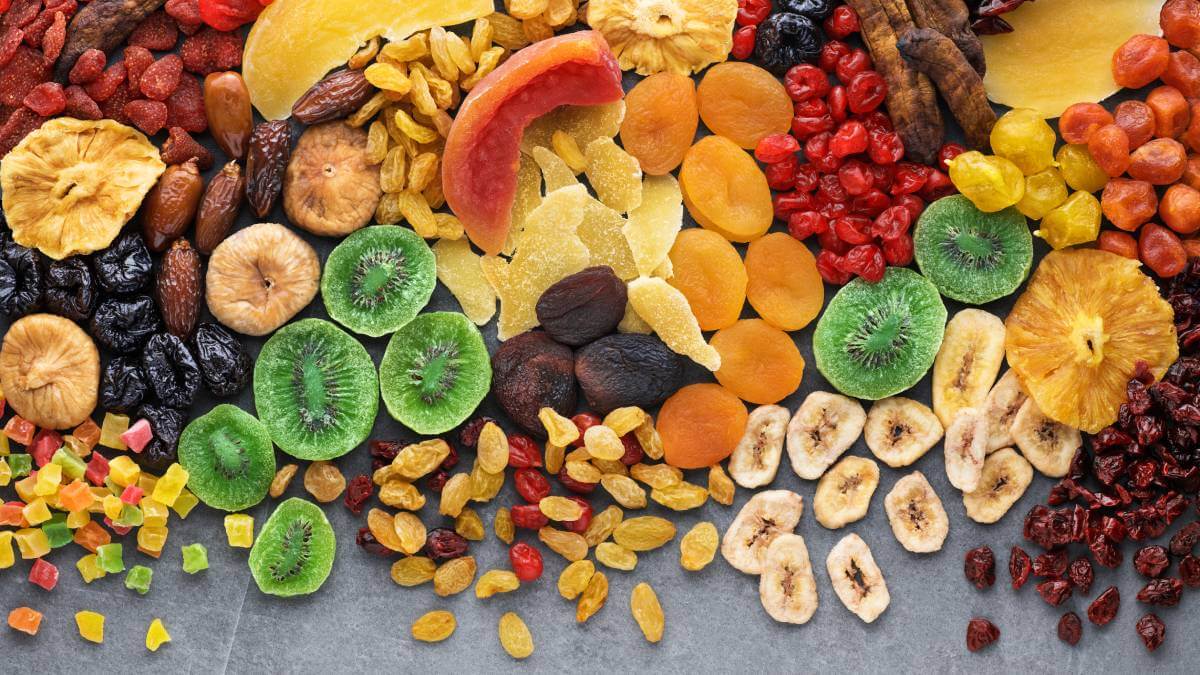Dehydration is one of the oldest forms of food preservation.
It’s efficient, requires hardly any equipment, extends the shelf life of food and can even enhance its flavour.
But what are the pros and cons?
The rewards
On the plus side, if you want a quick, healthy snack, it’s hard to go past dehydrated foods. As you are simply removing water from food, dehydrating is the perfect alternative to highly processed foods that are saturated in preservatives such as fats, chemicals or sugars to keep them fresh.
And as the dehydration process concentrates the food, so too is the density of nutritional value. As a result, you can meet your daily requirement of vitamins and minerals much more quickly.
Dehydrated foods also maintain their nutrients for longer than fresh food.
According to WebMD, research shows fresh food loses its vitamin, mineral and antioxidant content within a few days of refrigeration — with reductions as high as 50 per cent for some nutrients.
Dehydrated foods keep the same calorie, protein, fat, carbohydrates and fibre as undehydrated foods. They also keep the same essential fatty acids, minerals, enzymes, most vitamins and antioxidants.
Dehydrated foods can also add variety to your diet by making foods available that would otherwise be out of season.
Dehydrating foods also reduces your risk of food-borne illness. Bacteria, yeast and mould love a moist environment and by depriving them of that via dehydration you reduce your risk of food poisoning.
The risks
It’s easy to overeat dehydrated foods and increase your risk of obesity.
Because the serving sizes are smaller, and the nutritional value is more dense, you can easily increase your portion size without even thinking about it. Try to picture how much space the fresh food would take up and use that as a guide to how much you should be eating.
For example, a whole apricot is a good-sized snack, but you could easily eat half a dozen dried apricots. Imagine what eating six apricots would feel like and maybe cut back on the dried version.
Flavourings can also be counterproductive. Some dehydrated foods such as beef jerky enhance the flavour with spices and seasonings such as salt or marinades.
If you are drying your own foods, try to use a light hand with flavourings heavy in salt such as soy sauce.
If buying dehydrated foods, always check the labels for salt and sugar levels and proceed with caution.
Our family loves dried mango, but had to give up buying it commercially as it always seems to come with a coating of sugar.
While dehydrating does retain a lot of vitamins and minerals, some are lost in the process. Dehydrating can reduce or destroy vitamin A and C, and B vitamins and some minerals depending on the method used.
Eating too much dried food can dehydrate you. We get about 20-30 per cent of our daily fluid intake from food. Eating a lot of dehydrated food can deprive your body of water. So if you are eating a lot of dried foods, try to either increase your water intake or rehydrate the food where possible.
The concentrated levels of nutrients can also interfere with some medications.
For example, according to WebMD, kale chips are packed with vitamin K, which promotes heart health but counteracts medications such as blood thinners. Talk to your doctor or nutritionist about what nutrients you should manage in your diet before powering up your food dehydrator.
Do you dehydrate foods? What is your motivation? Why not share your opinion in the comments section below?
Also read: 11 air fryer mistakes you are making

